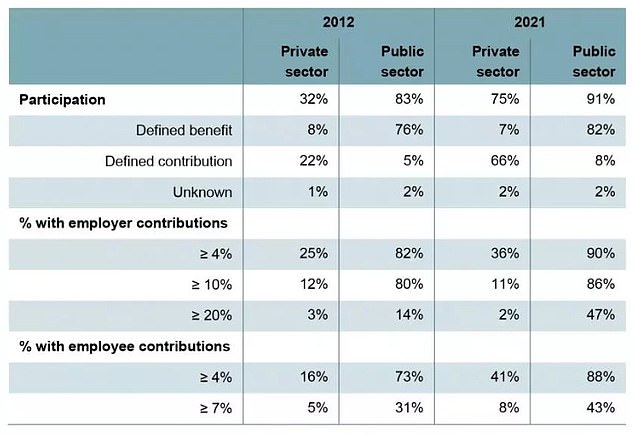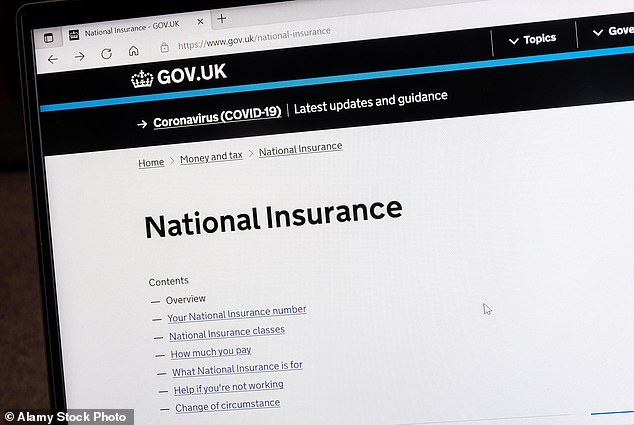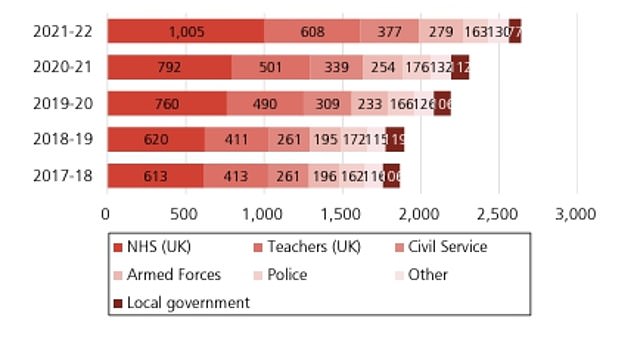How Rachel Reeves’ budget could widen the gap between public and private pensions
A huge gap between generous public sector pensions and tight private sector pensions could widen even further next week.
Chancellor Rachel Reeves is expected to protect public sector workers from an attack on employers’ pension contributions in the budget.
Plans to impose a new national insurance levy on the contributions employers pay into workers’ pensions are expected to raise £15.4 billion.
But it has emerged that public sector workers will be protected from the tax raid, while private sector workers will take the hit.
This would widen the already huge gap between the retirement income people get depending on whether they work in the public sector or with a private employer, experts warn.
Chancellor Rachel Reeves is expected to protect public sector workers from an attack on employers’ pension contributions in the budget

It has emerged that gilded public sector workers will be protected from the tax raid, while private sector workers will take a hit (file image)

Research by the IFS think tank has previously highlighted the growing gap between public and private pension provision
Public sector workers are rewarded with pensions that are largely taxpayer funded and provide much more generous retirement incomes than private sector workers.
Calculations by asset manager Quilter have shown that for every £1 an employee saves into a pension, some state-backed schemes pay out six times as much pension income as private schemes.
Civil servants receive Britain’s most gold-plated pensions, with the highest pay for every pound saved.
Doctors and teachers also receive generous pension packages.
Public sector schemes known as ‘defined benefits’ promise to pay a guaranteed income that rises with inflation from the date you retire until your death.
Meanwhile, in the private sector, most people save in modern ‘defined contribution’ pensions, where the responsibility for converting a pension plan into retirement income lies with the individual, not the company.

Plans to impose a new national insurance levy on the contributions employers make to workers’ pensions are expected to raise £15.4 billion (file image)

The latest Whole of Government Accounts, published earlier this year, highlights the government’s rising liabilities for public sector pensions
Employers are required to pay the equivalent of just 3 percent of their staff’s salaries into the funds each year.
Currently, employers do not pay NI on the money they contribute to pensions on behalf of their staff.
If Ms Reeves announces a new burden on private sector employers it would have a direct knock-on effect on working people, said Tom Selby, director of public policy at stockbroker AJ Bell.
He warned that this could lead to employers cutting the amount they pay into their workers’ pensions, or affect future pay rises as companies absorb the new costs. This could mean a significant blow to employees’ future retirement income.
Someone earning £35,000 today and whose salary increases by 2 per cent a year would be £177,000 worse off after 35 years if their employer reduces the amount they pay into their pension from 8 per cent to the minimum of 3 per cent.
AJ Bell’s calculations showed that someone earning £60,000 today would be £303,000 poorer when they retired.
It is rumored that the Treasury plans to compensate public sector employers, including the NHS and government services, to the tune of £5 billion.
Almost half of employers who pay their staff more than the minimum pension will consider reducing their contributions if the Chancellor introduces NI on employer pension payments, a poll by the Association of British Insurers has found.
